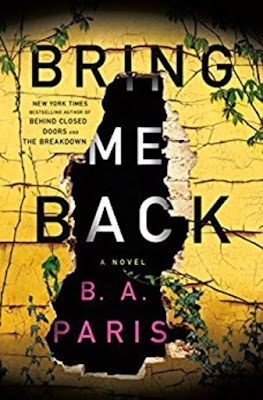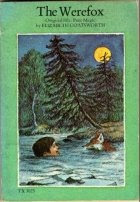154. Jacob's Room by Virginia Woolf
Jacob's Room by Virginia Woolf.
The Art of the Novella
Rating: (3/5)
(US) - (Canada) - (Kindle)
1922
Jan, 2011, Melville House, 212 pgs
Age: 18+
"Jacob’s Room was the first book in Virginia Woolf’s unique, experimental style, making it an important text of early Modernism. Ostensibly, the story is about the life of Jacob Flanders, the title character, who is evoked purely by other characters’ perceptions and memories of him. Jacob remains absent throughout. Elegiac in tone, the work beautifully memorializes the longing and pain of a generation that lost so many of its promising young men to World War I."
Received a new copy as.part of this months novella book club from the publisher.
Virginia Woolf is an author I've always felt I should have read so I was thrilled when this novella showed up in the mail as part of the book club I belong too. The synapses didn't sound exactly thrilling but I was certainly game to reading this. The book started out great for me a we got to know Betty Flanders, and through her, her little boy, the middle son, Jacob. Then suddenly we are transported to Jacob at college and the story became very heavy for me as Jacob, his friend and professors rambled through academia. Oh my, I wanted to use my 50-page rule and DNF this book around this point but I decided to persevere because 1) the purpose of my belonging to this book club is to widen my range of "classic" authors and 2) it wouldn't take me that long to read it. So I gave myself 50 pages a day to read and finished in 4 days. As I started each day it was a hard slog but as I got into it about 25 pages I was enjoying the experience and pleased with my read at the end of my daily "section". There really isn't any plot here, I found Woolf's writing very vivid and expressive but sometimes was not sure what the point was. I enjoyed the parts where the women were the main focus and we learned of Jacob through their eyes, though we never really know Jacob at all. The parts where Jacob is the main focus or that are all men were really boring for me; I felt like Jacob needed a woman's touch to be interesting. I've heard Woolf's style of writing, "stream of consciousness" talked about so often that I was rather disappointed that I didn't really see what the big deal was. The narration does flow in a distracted sort of way with themes and topics popping up here and there as they come to mind but that didn't bother me; the only thing that annoyed me with the writing was that the omniscient, unknown narrator of this story would occasionally refer to themselves in the first person (*I* this, *I* that). Who are they and why do I care what they think? This suddenly feels like the author popping in and reminding me that I'm just reading her story. I'm glad I read this; I didn't dislike it; I wasn't entertained but I did find it interesting. I would, and do want to read Woolf's two famous books "To the Lighthouse" and "Mrs. Dalloway", just to say I have, and now at least I know what to expect and am not so daunted in picking them up.
The Art of the Novella
Rating: (3/5)
(US) - (Canada) - (Kindle)
1922
Jan, 2011, Melville House, 212 pgs
Age: 18+
"Jacob’s Room was the first book in Virginia Woolf’s unique, experimental style, making it an important text of early Modernism. Ostensibly, the story is about the life of Jacob Flanders, the title character, who is evoked purely by other characters’ perceptions and memories of him. Jacob remains absent throughout. Elegiac in tone, the work beautifully memorializes the longing and pain of a generation that lost so many of its promising young men to World War I."
Received a new copy as.part of this months novella book club from the publisher.
Virginia Woolf is an author I've always felt I should have read so I was thrilled when this novella showed up in the mail as part of the book club I belong too. The synapses didn't sound exactly thrilling but I was certainly game to reading this. The book started out great for me a we got to know Betty Flanders, and through her, her little boy, the middle son, Jacob. Then suddenly we are transported to Jacob at college and the story became very heavy for me as Jacob, his friend and professors rambled through academia. Oh my, I wanted to use my 50-page rule and DNF this book around this point but I decided to persevere because 1) the purpose of my belonging to this book club is to widen my range of "classic" authors and 2) it wouldn't take me that long to read it. So I gave myself 50 pages a day to read and finished in 4 days. As I started each day it was a hard slog but as I got into it about 25 pages I was enjoying the experience and pleased with my read at the end of my daily "section". There really isn't any plot here, I found Woolf's writing very vivid and expressive but sometimes was not sure what the point was. I enjoyed the parts where the women were the main focus and we learned of Jacob through their eyes, though we never really know Jacob at all. The parts where Jacob is the main focus or that are all men were really boring for me; I felt like Jacob needed a woman's touch to be interesting. I've heard Woolf's style of writing, "stream of consciousness" talked about so often that I was rather disappointed that I didn't really see what the big deal was. The narration does flow in a distracted sort of way with themes and topics popping up here and there as they come to mind but that didn't bother me; the only thing that annoyed me with the writing was that the omniscient, unknown narrator of this story would occasionally refer to themselves in the first person (*I* this, *I* that). Who are they and why do I care what they think? This suddenly feels like the author popping in and reminding me that I'm just reading her story. I'm glad I read this; I didn't dislike it; I wasn't entertained but I did find it interesting. I would, and do want to read Woolf's two famous books "To the Lighthouse" and "Mrs. Dalloway", just to say I have, and now at least I know what to expect and am not so daunted in picking them up.



Comments
Post a Comment